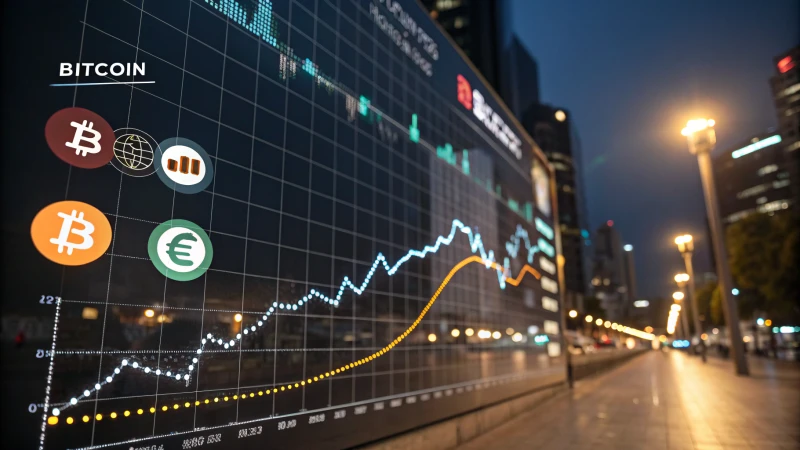
I have explored the unpredictable world of cryptocurrency. I often ask myself one question. What truly causes Bitcoin’s price to rise so much?
Bitcoin price inflation is driven by several key factors including its limited supply, demand dynamics, market sentiment, regulatory environment, technological advancements, and macroeconomic influences. Understanding these elements is essential for anyone looking to navigate the cryptocurrency landscape effectively.
I remember the first time I bought Bitcoin. The thrill of investing in something new and groundbreaking was very exciting. I quickly discovered that understanding the market was just as important as the investment itself. Various factors were interconnected like a web shifting beneath my feet. Bitcoin’s limited supply of 21 million coins creates urgency among investors. Realizing that more people were joining the digital currency world added pressure. Each halving event increased the feeling of scarcity. I appreciated how unique this asset really is.
How Does Limited Supply Impact Bitcoin Prices?
Ever thought about how Bitcoin’s limited supply affects its price? This is an interesting dive into cryptocurrency economics. It probably reveals a lot about market behavior. Let’s discover this fascinating connection!
Bitcoin’s limited supply greatly impacts its price by creating scarcity. Demand rises as more people want Bitcoin. The fixed supply probably leads to higher prices. This effect is more evident during halving events. Halvings really reduce new coin generation.
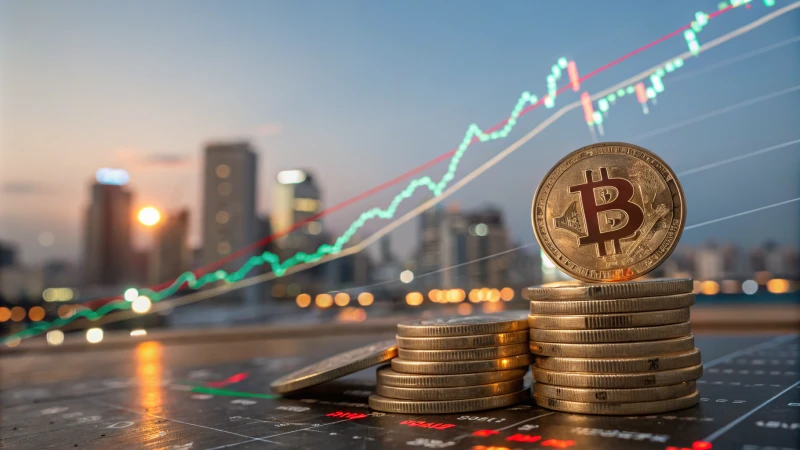
The Idea of Scarcity in Bitcoin
When I first discovered Bitcoin, the limited supply of 21 million coins amazed me. This scarcity affects Bitcoin’s value directly in the market. During the last halving event, prices jumped, creating much excitement among investors. It was clear proof that limited availability could cause a rush of interest, pushing prices higher as people tried to get something rare.
Halving Events’ Importance
Halving events serve as key points in Bitcoin’s journey. These happen roughly every four years. Each event decreases the reward miners get for new blocks, slowing the release of new bitcoins. The excitement around these events is really strong. I remember reading many articles and social media discussions guessing about future changes. In the past, these events often coincided with big price rises. Check the table below to see past halving events and how they affected prices:
| Halving Date | Block Reward Reduction | Price Before Halving | Price After Halving |
|---|---|---|---|
| Nov 2012 | 50 to 25 BTC | $12 | $1,000+ |
| Jul 2016 | 25 to 12.5 BTC | $650 | $20,000+ |
| May 2020 | 12.5 to 6.25 BTC | $8,500 | $60,000+ |
Demand and Investor Behavior
As Bitcoin nears its cap, demand dynamics become more important. It feels like a musical chairs game. When more people want Bitcoin, they often pay more because of the limited supply. Retail investors and institutions competing for Bitcoin raise prices. During financial instability, I felt a strong urge to invest in Bitcoin; the finite nature of Bitcoin attracted me when everything else seemed shaky.
Market Sentiment and Speculation
Trading involves a lot of emotions. Investor feelings greatly influence Bitcoin’s price changes. Positive news brings an adrenaline rush; regulations becoming better or famous people endorsing Bitcoin create excitement. But negative news can quickly cause panic, making prices drop. I’ve watched friends join enthusiastically due to a headline and then leave just as fast—it’s exciting yet stressful.
Accessibility and Liquidity
Buying and selling Bitcoin is very easy now thanks to many platforms that allow trading and investing here. This ease helps Bitcoin’s liquidity stabilizing prices but also increases volatility with demand changes see more. We live in exciting times; even small shifts in investor feelings can greatly affect prices because of the limited supply.
Regulatory Impact
Regulations are an important aspect too learn more. Favorable rules bring a positive atmosphere to the market; more access often leads to more institutional investments and higher prices check this out. But strict rules create uncertainty—demand decreases as tension rises.
Watching regulatory trends is part of my routine as I navigate this complex market.
Macroeconomic Influences and Bitcoin’s Safety Role
During economic troubles, I think about Bitcoin as protection against inflation and currency problems discover how. It acts like a safety net when traditional assets become unstable; understanding macroeconomic factors is key for predicting how external situations might impact Bitcoin’s value due to its fixed supply.
What Role Does Demand Play in Bitcoin Valuation?
Do you wonder why Bitcoin’s price behaves like a rollercoaster? Demand strongly affects its value. This wild market sees constant changes because of it. The impact is very profound.
Demand is very important for Bitcoin’s value. It influences price changes due to limited supply and market emotions. Usually, more demand from small or large investors leads to higher prices. Investors really affect Bitcoin’s price.
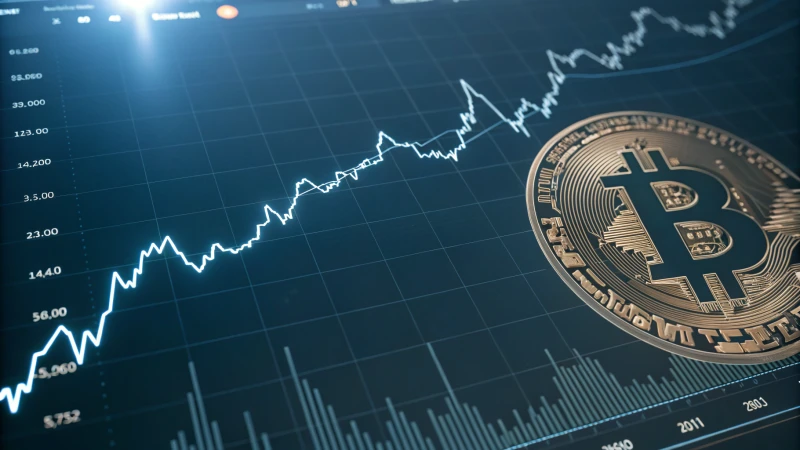
Understanding Demand Dynamics in Bitcoin Valuation
Demand holds great importance in Bitcoin value. It affects price changes due to limited supply and market emotions. More demand from people or big investors often leads to rising prices. Demand seems alive, reacting to market noises and investor feelings.
When I began learning about Bitcoin, I found demand to be a real force in the cryptocurrency world. It is powerful. Bitcoin’s limited supply of 21 million coins highlights the play between supply and demand. Interest increases. Demand grows. This especially happens during significant news events.
For example, when famous people support Bitcoin, everyone suddenly wants some. Prices rise quickly. Excitement fills the air. Moments like these are unforgettable.
Factors Affecting Demand for Bitcoin
Knowing what affects demand is very important for Bitcoin investors. Here are some key points I discovered:
| Factor | Description |
|---|---|
| Investor Sentiment | Positive news can attract buyers, while negative news can lead to panic selling. |
| Institutional Adoption | Increased interest from institutions often leads to a surge in demand and price spikes. |
| New Use Cases | As Bitcoin finds new applications, demand can increase among different user demographics. |
| Market Accessibility | Enhanced access through platforms increases participation and demand for Bitcoin. |
Understanding these factors is crucial for anyone looking to navigate the volatile waters of Bitcoin investment.
The Impact of Market Sentiment on Demand
Market mood drives the crypto world. Positive news, like acceptance by laws or celebrity support, excites investors. Prices rise. Investors feel united. But when bad news spreads, panic appears quickly. Many sell and prices fall.
In 2020, the market felt very joyful due to positive news and endorsements from high-profile investors created a euphoric sentiment that led to unprecedented demand levels.Explore sentiment analysis techniques1.
How Big Investors Affect Demand
Big investors entering Bitcoin have changed the market greatly. Companies like MicroStrategy made big Bitcoin buys which sparked a wave of interest confirming Bitcoin’s value.
This shift not only raises demand but also increases stability as known companies support this digital currency making new investors feel safer.Find out how institutions impact crypto markets2.
Summary of Demand’s Role in Bitcoin Value
In short, demand powers Bitcoin’s value changes as it shapes how we see it worldwide through the interplay between market conditions and investor feelings.Learn more about market influence3. By understanding these trends helps us invest in Bitcoin more confidently.
How Does Market Sentiment Affect Bitcoin Trading?
Do you know the excitement when your investments increase and decrease with the news? Grasping market sentiment is really important for those entering Bitcoin trading. This concept goes beyond numbers. It is an emotional ride that affects our financial paths.
Market sentiment greatly affects Bitcoin trading. It drives price changes through investor emotions and reactions to news. Positive sentiment probably increases buying pressure. In contrast, negative sentiment may cause panic selling and sharp price drops. Investors react strongly to these sentiments.
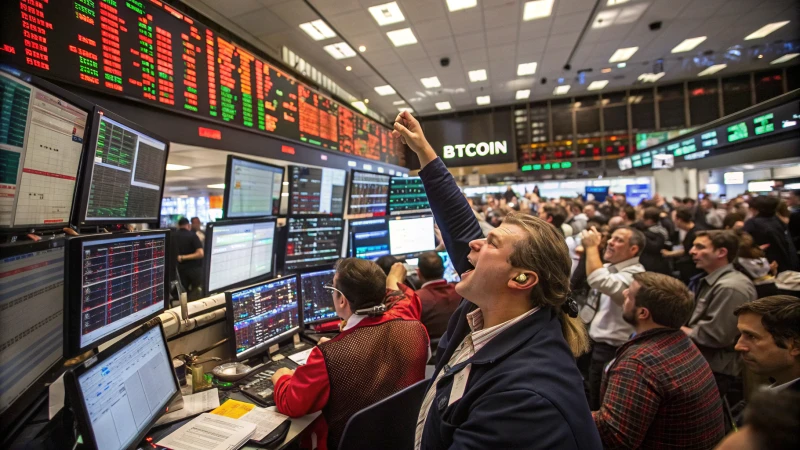
The Role of Market Sentiment
Market sentiment deeply affects Bitcoin trading. It behaves like a strong guide for price changes created by investors’ feelings and actions. When investors feel optimistic about Bitcoin’s future, they are more likely to buy, driving up the price. This can create a feedback loop, where rising prices attract more buyers, further increasing demand.
Conversely, fear can create panic, causing prices to fall. Traders need to understand this dance of human emotion. This is very important.
Psychological Factors in Trading
The psychology behind trading decisions significantly impacts market sentiment. Emotions such as fear and greed can dictate market movements. In many cases, traders react not just to data but to the emotions that data evokes.
To illustrate this, consider the following table:
| Emotion | Market Effect | Example | |
|---|---|---|---|
| Fear | Selling pressure increases | Panic selling or negative news | |
| Greed | Buying pressure increases | Bull market or positive news |
Traders often need to overcome their emotional impulses to make rational decisions, which can be challenging in a market characterized by rapid fluctuations.
News and Social Media Influence
In today’s digital age, news cycles and social media play a significant role in shaping market sentiment. Positive news stories or endorsements from influential figures can lead to sharp increases in Bitcoin’s price. For instance, announcements regarding regulatory acceptance or institutional investment can foster a sense of security and optimism among investors.
On the other hand, negative news—such as security breaches or regulatory bans—can lead to panic selling. Tools for sentiment analysis can be valuable here, helping traders evaluate public perception through social media trends and news coverage. By monitoring these indicators, traders can anticipate potential price movements based on shifts in sentiment.
The Speculative Nature of Bitcoin Trading
Bitcoin trading is heavily influenced by speculation. Many traders buy Bitcoin not only for its underlying value but also in hopes of profiting from price changes driven by sentiment. This speculative nature means that sentiment can lead to rapid and often unpredictable price changes.
Market analysts often look for signs of speculation, such as trading volume spikes or shifts in open interest in Bitcoin futures markets. High trading volumes may indicate strong sentiment, while low volumes could suggest apathy or uncertainty among investors. By understanding these patterns, traders can make more informed decisions regarding their positions in Bitcoin.
Conclusion
To successfully navigate Bitcoin trading, it is essential to understand the impact of market sentiment. By being aware of emotional drivers and external influences on investor behavior, traders can position themselves better in this highly volatile market. For further insights, consider exploring tools that analyze sentiment and trends in real time through resources like sentiment analysis tools4 and market psychology studies5.
How Do Regulatory Influences Shape Bitcoin Prices?
Have you wondered how government rules change Bitcoin’s value? Let’s explore this fascinating relationship. Discover what this means for everyone in the crypto world.
Government rules affect Bitcoin prices through policies on legality, taxes and whether institutions accept it. Friendly regulations typically increase prices. On the other hand, strict rules decrease them. Knowing this connection is very important for moving safely in the cryptocurrency market.
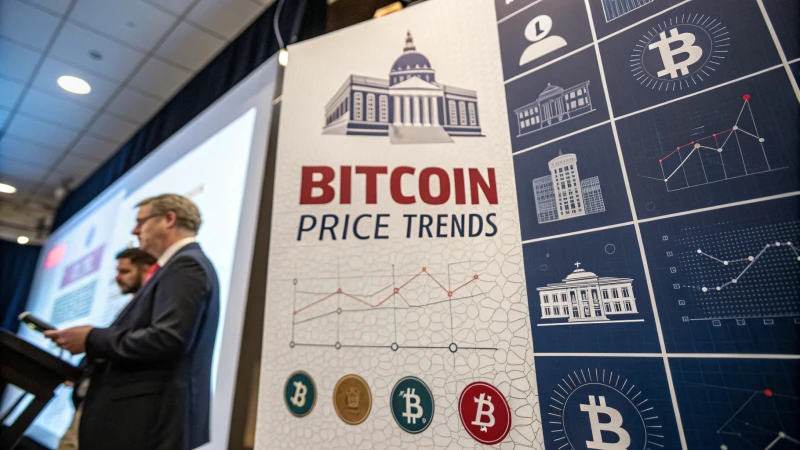
Understanding Regulatory Influences
Understanding how regulations change Bitcoin prices is like solving a puzzle. Every piece really matters. I remember my first experience with Bitcoin. I was excited but also very worried about its ups and downs. Back then, I didn’t know regulations would become a big focus in my investing path.
Regulatory influences on Bitcoin prices are multifaceted and can vary significantly from one jurisdiction to another. Government policies, such as taxation, legality of transactions, and guidelines surrounding initial coin offerings (ICOs), create an environment that either fosters growth or stifles innovation. For instance, countries that embrace cryptocurrency with clear regulations tend to see a rise in investment, leading to price increases.
Favorable Regulations
Favorable regulations are like opening big doors for investment. When governments allow Bitcoin ETFs or recognize Bitcoin as money, it helps. I remember the excitement when Bitcoin ETFs were approved in the U.S. Investors felt relief. Bitcoin prices jumped over 20% in days. Regulatory acceptance really boosts markets.
- Example: After the SEC approved the first Bitcoin ETF, prices soared by over 20% in a matter of days, highlighting the influence of regulatory acceptance on market sentiment.
Restrictive Measures
Strict trading rules or bans on cryptocurrencies scare investors. I’ve seen news from places like China about banning crypto exchanges. This news can cause big price drops. It shakes my faith in the market.
| Country | Regulatory Action | Price Impact |
|---|---|---|
| China | Ban on crypto exchanges | Significant price drop |
| India | Proposed high taxation | Market uncertainty |
| El Salvador | Adoption of Bitcoin as legal tender | Price rally |
Impact of Central Banks
Central banks are key in this regulation game too. Their interest rates and currency policies can affect Bitcoin’s appeal as another investment. I remember when the Federal Reserve announced low interest rates in a crisis. Many investors, including myself, rushed to Bitcoin as it was a shield against inflation.
- Example: When the Federal Reserve announced its low interest rate policy during economic downturns, many investors flocked to Bitcoin, driving its price upwards.
The Role of International Regulations
Bitcoin crosses borders. International regulations also influence prices a lot. When countries work together to regulate cryptocurrencies, it creates stability that encourages investment.
- Example: The Financial Action Task Force (FATF) guidelines on anti-money laundering have led many countries to tighten their regulations, which can either stabilize or destabilize local markets based on how these rules are implemented.
In conclusion, regulations’ impact on Bitcoin prices is complex and varies across different regions. Understanding these dynamics has been crucial for me as I navigate the exciting yet uncertain world of cryptocurrencies.
For those curious about deeper regulations and market connections, explore the role of central banks6 or how international agreements shape cryptocurrency laws7. This journey is not just about numbers; it’s about understanding the heartbeat of a new financial world.
How Do Macroeconomic Conditions Shape Bitcoin’s Value?
Have you ever thought about why Bitcoin’s price changes with news stories? News impacts the price. It is not only about supply and demand. Larger economic factors influence the world of digital money in interesting ways. Let’s explore this topic more closely.
Inflation rates, currency devaluation, interest rates and overall economic growth have a big impact on Bitcoin’s value. Knowing these elements is important for smart investment decisions in cryptocurrency. Understanding these factors really matters for investors.
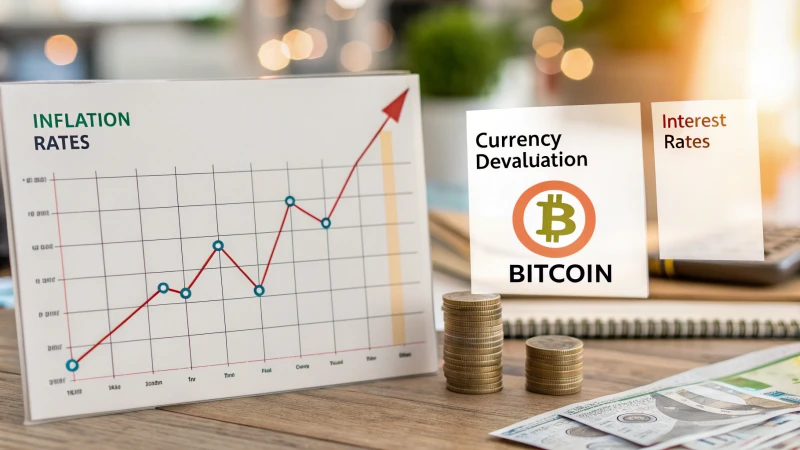
Understanding Macroeconomic Influences on Bitcoin
Macroeconomic conditions play a crucial role in shaping the value of Bitcoin, impacting investor behavior and market dynamics. Here are some key macroeconomic factors:
Inflation Rates
High inflation often leads investors to seek alternative stores of value, and Bitcoin has emerged as a popular choice. When traditional currencies lose purchasing power, many turn to Bitcoin as a hedge8 against inflation. For instance, during periods of elevated inflation, Bitcoin’s price tends to rise as demand increases.
Currency Devaluation
Countries facing severe currency devaluation often see an uptick in Bitcoin adoption. Investors may view Bitcoin as a safer asset compared to their faltering local currencies. Historical examples include Venezuela and Zimbabwe, where economic crises prompted citizens to invest in cryptocurrency9 for asset preservation.
| Country | Economic Condition | Bitcoin Adoption Reason |
|---|---|---|
| Venezuela | Hyperinflation | Store of value |
| Zimbabwe | Currency collapse | Hedge against devaluation |
Interest Rates
Low-interest rates can lead to increased investment in assets like Bitcoin, as traditional savings accounts yield minimal returns. This scenario encourages investors to allocate funds into riskier assets, including cryptocurrencies, driving up their prices. Conversely, rising interest rates can dampen enthusiasm for Bitcoin due to the opportunity cost of holding it instead of earning interest on savings or bonds.
Economic Growth
In periods of robust economic growth, investor confidence typically increases, leading to greater investments in Bitcoin. As disposable income rises, more individuals are willing to explore cryptocurrency investments. However, during economic downturns, uncertainty may cause many to retreat from speculative investments like Bitcoin.
Market Sentiment and Economic Indicators
Market sentiment, often influenced by macroeconomic indicators such as GDP growth rates, employment levels, and consumer spending, significantly affects Bitcoin’s value. Positive economic data can lead to bullish sentiment and rising Bitcoin prices, while negative data may trigger sell-offs.
Speculation vs. Fundamentals
It’s essential to differentiate between speculation based on macroeconomic news and the fundamental value of Bitcoin itself. While macroeconomic conditions can create favorable environments for price appreciation, the inherent volatility of cryptocurrency trading means that prices can be swayed by market psychology as much as by economic fundamentals10.
Conclusion: The Interplay of Macroeconomics and Cryptocurrency
Understanding how macroeconomic conditions shape Bitcoin’s value is vital for investors navigating this volatile landscape. By analyzing inflation rates, currency stability, interest rates, and overall economic growth, investors can make more informed decisions when considering cryptocurrency investments.
Conclusion
Bitcoin’s price inflation stems from limited supply, demand dynamics, market sentiment, regulatory influences, technological advancements, and macroeconomic conditions affecting investor behavior.
- Learn about the role of institutional investment in shaping Bitcoin demand.
- Understand how market sentiment influences investor behavior and demand for Bitcoin.
- Discover how demand fluctuations impact Bitcoin’s market value and investment potential.
- Explore key tools for assessing market sentiment that can help refine your trading strategy.
- Learn more about how public perception influences Bitcoin prices and trading strategies.
- Discover how various government policies and regulations shape Bitcoin’s market dynamics and influence its price movements.
- Learn about international regulations and their effects on Bitcoin valuation and trading practices.
- Explore how macroeconomic conditions affect Bitcoin’s pricing and investment strategies through expert analysis and research articles.
- Discover the correlation between inflation and Bitcoin prices through various economic analyses and case studies.
- Gain insights into how global economic growth affects cryptocurrency investments and market trends.
